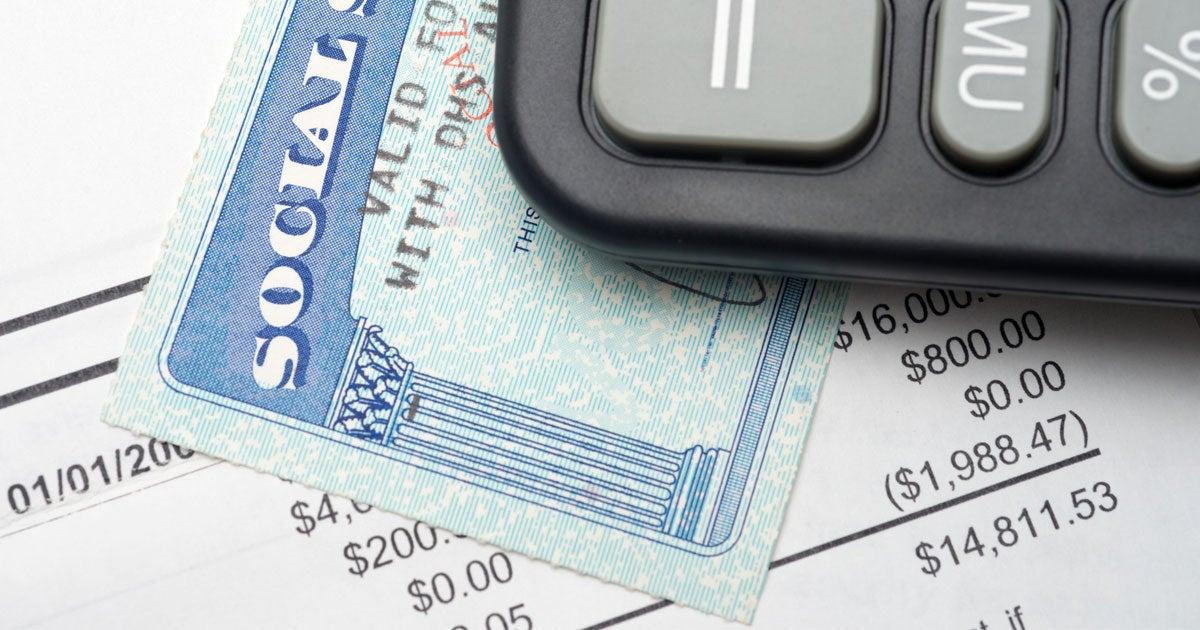
Related Topics
The Supplemental Security Income (SSI) program is one of the largest sources of federal assistance to people of all ages who are blind or have disabilities.1
Like Social Security Disability Insurance (SSDI)—the other major government source of disability payments—SSI follows disability standards set by the Social Security Administration (SSA). The SSA runs the SSI program.
What is the difference between Social Security disability and SSI?
SSI is needs-based, which means only people with limited income and resources can qualify. Most people receiving monthly SSI payments are eligible because of blindness or a disability.2
SSDI provides benefits to people with disabilities who have earned enough work credits to qualify.
You may be eligible for payments from both programs: one of 11 SSDI recipients also get SSI benefits.3 Read more about how both programs work in our side-by-side comparison.
What is a Social Security disability?
The Social Security Administration considers people 18 and older to have a disability if they have a physical or mental condition that:4
- Results in the inability to do any substantial gainful activity; and
- Can be expected to result in death; or
- Has lasted or can be expected to last for a continuous period of not less than 12 months
“Because the (Social Security) Act defines disability so strictly, Social Security disability beneficiaries are among the most severely impaired in the country,” the SSA explains. “In fact, Social Security disability beneficiaries are more than three times as likely to die in a year as other people the same age. Among those who start receiving disability benefits at the age of 55, 1-in-6 men and 1-in-8 women die within five years of the onset of their disabilities.”5
How does the Social Security Administration define blindness?
You’re considered blind if the vision in your better eye, using a correcting lens, is 20/200 or less, or if your visual field is 20 degrees or less in your better eye.6
“If your vision doesn’t meet our definition of blindness, you may still qualify for disability benefits,” the SSA says. “This is true if your vision problems alone, or combined with other health problems, prevent you from working.”6
What conditions are recognized as a disability?
There are numerous physical and psychological conditions that may make you eligible to receive disability benefits.
The SSA organizes conditions that may qualify as disabilities under 14 different categories:7
- Musculoskeletal disorders
- Special senses and speech
- Respiratory disorders
- Cardiovascular system
- Digestive system
- Genitourinary disorders
- Hematological disorders
- Skin disorders
- Endocrine disorders
- Congenital disorders that affect multiple body systems
- Neurological disorders
- Mental disorders
- Cancer (malignant neoplastic diseases)
- Immune system disorders
You can explore the SSA’s list of impairments for more information about specific health conditions that may qualify as disabilities.
What are the most approved disabilities?
In 2023, six out of 10 SSI recipients under age 65 were diagnosed with a mental disorder: conditions like depression, schizophrenia, developmental and intellectual disorders, and the like. For the SSDI program, the largest diagnosis category in 2023 was diseases of the musculoskeletal system and connective tissue (34.1%).3
What is the monthly payout amount for SSI disability?
The 2025 maximum monthly benefit is $967 for individuals and $1,450 for couples.8
In July 2025, the average monthly SSDI benefit amount for all recipients was $1,580. During that same time frame, for those receiving SSI, the average monthly payout was $716.09, with people 65 and older averaging $593.96.9
What is the SSI disability application process like?
The SSA will first determine whether you meet income, resource, and other eligibility requirements. If you do, you will need to provide:10
- The dates, places, and types of work you have done in the 15 years before you became unable to work because of your illnesses, injuries, or conditions, including your daily duties for the type of work you did and why your employment ended
- Information about your physical or mental impairment(s)
- Names, addresses, and telephone numbers of doctors, hospitals, and any other medical sources you have see
- Dates of treatment and the kinds of treatment you have received from your doctors, hospitals, and other medical sources
- Names of each prescription and non–prescription medicine that you take and the doctor who prescribed it
- The kinds of medical tests you have had, when and where they were done, and who sent you for them
How do I apply for SSI disability benefits?
You may be eligible to apply online. You may also call the SSA at 1-800-772-1213 (TTY 1-800-325-0778) to make an appointment to apply for benefits in person or by telephone with a representative from your local Social Security office.
What happens after I apply for SSI disability?
Your local Social Security office will send your claim to a federally funded state agency called the Disability Determination Services (DDS). The DDS uses the Social Security Administration’s disability criteria to make its determination.10
Is it hard to qualify for SSI disability benefits?
It can be. In a recent year, just four in 10 applications were approved.11 If your application is denied, there is an appeals process. If you decide to appeal, you may want a Social Security disability advocate to represent you. You can get a referral by calling the National Organization of Social Security Claimants’ Representatives at 1-800-431-2804 .
But don’t let this discourage you applying for SSI benefits. You can also explore other vital assistance options by visiting BenefitsCheckUp®. Our free, confidential tool provides information about the Supplemental Nutrition Assistance Program (SNAP) and other programs that can help you afford health care, medicine, food and utilities.
Sources
1. Social Security Administration. Benefits for People with Disabilities. Found on the internet at https://www.ssa.gov/disability/
2. Social Security Administration. SSI Annual Statistical Report, 2023. October 2024. Found on the internet at https://www.ssa.gov/policy/docs/statcomps/ssi_asr/index.html
3. Social Security Administration. Annual Statistical Report on the Social Security Disability Insurance Program, 2023. October 2024. Found on the internet at https://www.ssa.gov/policy/docs/statcomps/di_asr/index.html
4. Social Security Administration. Understanding Supplemental Security Income (SSI) Eligibility Requirements. 2025. Found on the internet at https://www.ssa.gov/ssi/text-eligibility-ussi.htm#disabled-adult
5. The Faces and Facts of Disability/Facts. Found on the internet at https://www.ssa.gov/disabilityfacts/facts.html
6. Social Security Administration. If You’re Blind or Have Low Vision – How We Can Help. 2025. Found on the internet at https://www.ssa.gov/pubs/EN-05-10052.pdf
7. Social Security Administration. Disability Evaluation Under Social Security. Found on the internet at https://www.ssa.gov/disability/professionals/bluebook/AdultListings.htm
8. Social Security Administration. You May Be Able to Get Supplemental Security Income. January 2025. Found on the internet at https://www.ssa.gov/pubs/EN-05-11069.pdf
9. Social Security Administration. Monthly Statistical Snapshot. July 2025. Found on the internet at https://www.ssa.gov/policy/docs/quickfacts/stat_snapshot/
10. Social Security Administration. If you are Disabled or Blind. 2025. Found on the internet at https://www.ssa.gov/ssi/text-disable-ussi.htm
11. Center on Budget and Policy Priorities. Policy Basics: Supplemental Security Income. Aug. 12, 2022. Found on the internet at https://www.cbpp.org/research/social-security/supplemental-security-income



